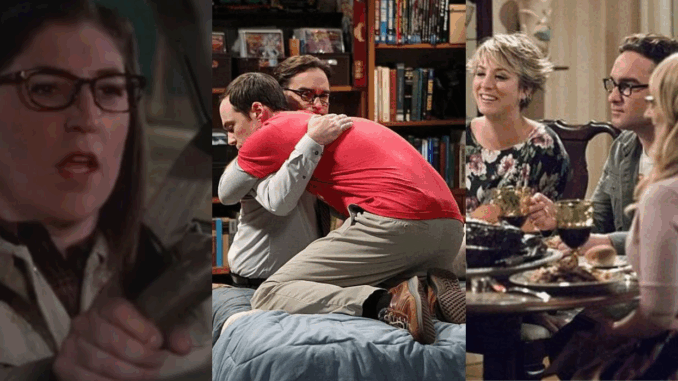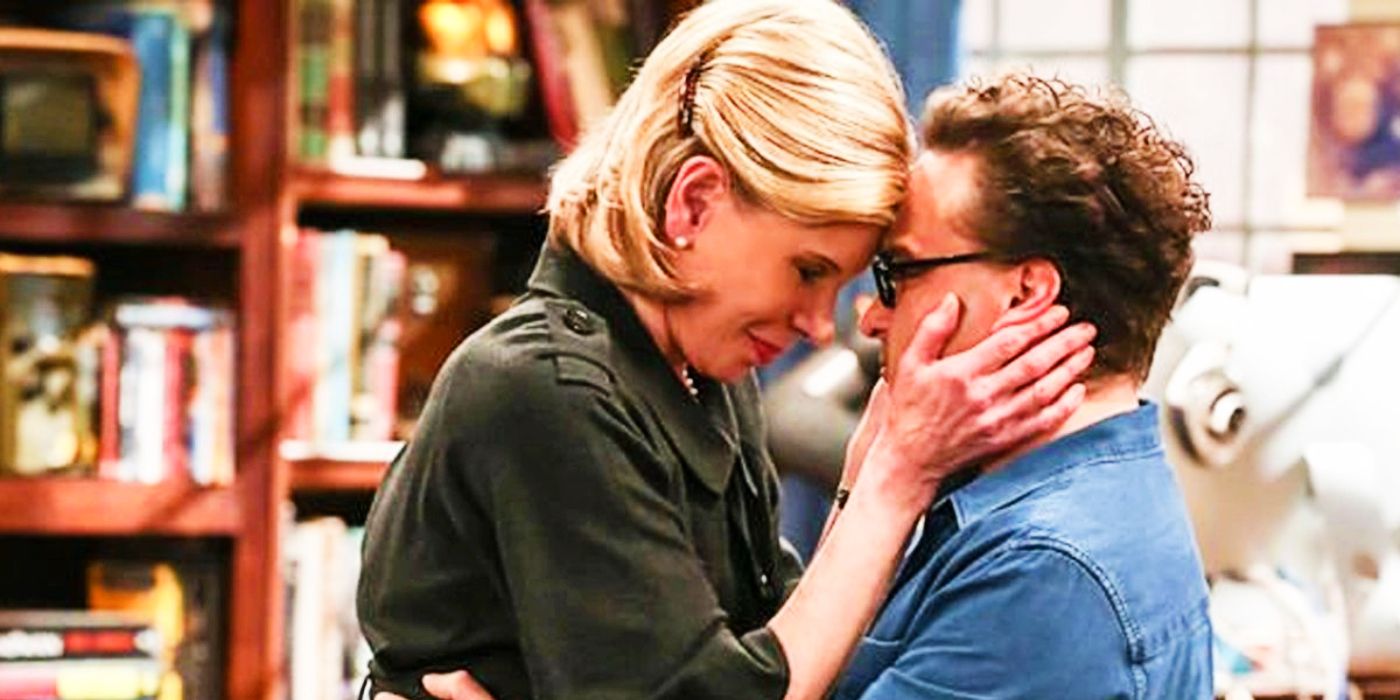
A Box, a Secret, and a Mother’s Voice
In a show known for its jokes about physics, pop culture, and awkward social interactions, The Big Bang Theory occasionally sneaks in episodes that tug at the heart. One such moment comes in “The Closet Reconfiguration” from Season 6, when Sheldon is invited to reorganize Howard and Bernadette’s home closet—and accidentally uncovers a letter from Howard’s absent father.
It starts, as many of the show’s best episodes do, with something simple. Howard, still living in the glow of newlywed life, hosts a small dinner gathering. Sheldon, ever obsessed with order, takes it upon himself to “fix” their closet. What he finds, however, isn’t clutter—it’s a piece of Howard’s unresolved childhood trauma. A sealed letter from the father who abandoned him.
For a character so often played for comic relief—especially with his cartoonish attempts to flirt in early seasons—this moment cuts deep. It exposes a rarely explored vulnerability in Howard Wolowitz: the pain of growing up without a father figure and never getting closure.
Sheldon’s Dilemma and Unlikely Compassion
When Sheldon finds the letter, he faces an unusual dilemma: respect privacy or satisfy his curiosity. In true Sheldon fashion, he reads it. But what’s surprising isn’t just that Sheldon crosses a boundary—it’s how seriously he treats the letter’s content. Unlike the robotic, insensitive version of Sheldon we often see, here he’s unusually gentle, even thoughtful.
Sheldon tells Leonard he read the letter but refuses to share its content with anyone else, including Howard. He believes it’s not his place to reveal what was written. It’s a rare instance of personal growth—perhaps not enough to rewrite Sheldon’s character, but enough to make the audience take note.
The fact that Sheldon, of all people, holds the emotional line speaks volumes about how The Big Bang Theory allows its characters to evolve in unexpected ways.
A Group Effort to Heal, Not Harm
The episode’s heart lies in a unique scene where the entire group—Leonard, Raj, Penny, Amy, Bernadette, and Sheldon—gather to help Howard come to peace with the letter’s existence. Instead of telling him what it said, they each fabricate a version of its contents—each one heartfelt, funny, or poetic.
Amy suggests it was an apology. Penny believes it was a wish for Howard to be happy. Leonard imagines it as a letter saying Howard was loved, even from afar. Raj, trying to cheer up his friend, spins a tale where Howard’s dad was a spy who had to disappear to protect him.
The audience never learns what the letter actually said. And more importantly, neither does Howard. That’s the brilliance of the episode. The truth becomes less important than the act of support and empathy. In a sitcom built on sarcasm, the sincerity here hits like a gut punch.
Howard: From Comic Relief to Complex Character

By Season 6, Howard had already begun evolving. His space mission, marriage to Bernadette, and subtle shift from womanizer to devoted husband showed a broader emotional range. But “The Closet Reconfiguration” cemented that transformation.
We see the boy in the man—the boy who felt abandoned, the boy raised by a loud, overbearing single mother who both coddled and scarred him. It reframes his earlier behavior, especially his need for attention and validation, as defense mechanisms for deeper wounds.
This episode gives Howard what few sitcoms offer their comic characters: emotional legitimacy. It doesn’t turn him into a tragic figure, but it allows viewers to understand him more fully.
A Study in Restraint and Subtlety
Unlike episodes built around spectacle or punchline-heavy scripts, “The Closet Reconfiguration” is quiet. Much of the drama unfolds in conversation, in implication, and in what’s left unsaid. The choice not to reveal the letter’s contents is storytelling restraint at its finest. It trusts the audience to fill in the blanks—and in doing so, it creates a more powerful impact.
There’s also something mature about the show letting each friend offer their own version of the truth. It mirrors real life. We don’t always get the answers we want. Sometimes, what matters is that the people around us are willing to sit with us in the not-knowing.
Why This Episode Matters
As The Big Bang Theory grew beyond its geek-sitcom roots, it began to embrace emotional honesty. “The Closet Reconfiguration” is a turning point not just for Howard, but for the entire series. It demonstrates the writers’ willingness to tackle difficult subjects—abandonment, childhood pain, identity—without sacrificing humor or heart.
Howard’s decision not to read the letter, and instead live with the warmth of his friends’ imagined truths, is a subtle yet profound act of self-care. It’s a reminder that healing doesn’t always come from answers—it can come from the people who help us carry the questions.